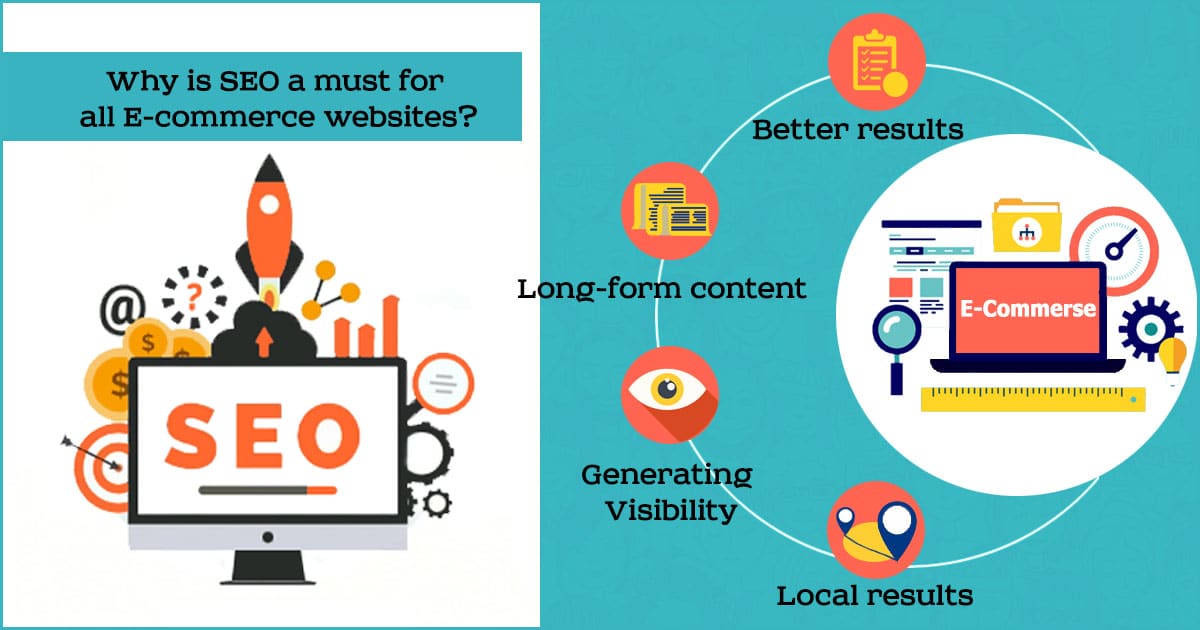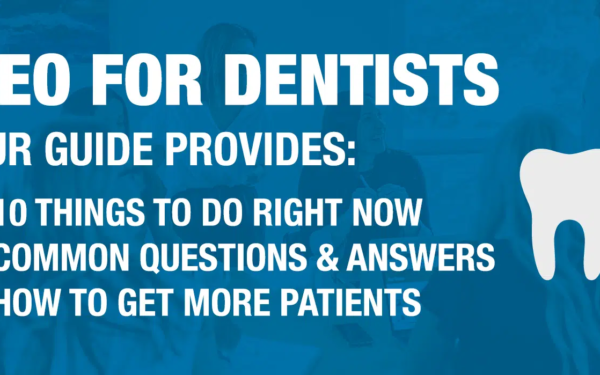Is SEO Worth It for E-commerce? – Web Cures Digital

Ecommerce has witnessed tremendous growth in recent years, with more businesses transitioning to online platforms to reach a broader audience. As the competition intensifies, it becomes crucial for ecommerce websites to employ effective strategies to stand out from the crowd and attract potential customers. Search Engine Optimization (SEO) plays a pivotal role in driving organic traffic to websites and enhancing their visibility in search engine results. In this article, we will explore the benefits, challenges, and strategies associated with implementing SEO for ecommerce websites to determine if it is indeed worth the investment.
Table of Contents
Benefits of SEO for Ecommerce Websites
Increased Organic Traffic
One of the primary advantages of hiring an ecommerce SEO expert is the potential for increased organic traffic. By optimizing your website for relevant keywords, you can improve your search engine rankings and attract visitors who are actively searching for products or services similar to what you offer. With a well-executed SEO strategy, you can generate a consistent stream of qualified traffic to your ecommerce site, resulting in higher chances of conversions and sales.
Higher Search Engine Rankings
Appearing on the first page of search engine results is crucial for ecommerce success. SEO helps you climb the ranks and secure a prominent position in search engine results pages (SERPs). By targeting the right keywords and optimizing your website’s content, meta tags, and URLs, you can increase your chances of ranking higher and being more visible to potential customers. Higher search engine rankings translate into greater visibility, credibility, and ultimately, increased website traffic.
Improved User Experience
SEO is not solely about search engine rankings; it also focuses on enhancing the user experience. Search engines prioritize websites that provide valuable and relevant content to users. By optimizing your site’s architecture, improving page loading speed, and ensuring easy navigation, you create a user-friendly experience that encourages visitors to explore your site further and make purchases. A positive user experience leads to higher customer satisfaction, increased repeat visits, and ultimately, improved conversion rates.
Cost-Effective Marketing Strategy
Compared to other digital marketing strategies, SEO can be a cost-effective solution for ecommerce businesses. While paid advertising campaigns require ongoing investments, SEO efforts, once implemented, can have long-lasting effects. With a solid SEO foundation in place, you can continue to attract organic traffic without significant ongoing expenses. Additionally, organic search results tend to generate higher click-through rates compared to paid ads, making SEO a cost-effective method for driving targeted traffic to your ecommerce website.
Challenges of Implementing SEO for Ecommerce
Despite the numerous benefits, implementing SEO for ecommerce comes with its own set of challenges. It’s important to be aware of these obstacles to develop effective strategies and overcome potential hurdles.
Competitive Landscape
The ecommerce industry is highly competitive, with numerous businesses vying for visibility and customer attention. Standing out among the competition requires comprehensive SEO strategies tailored to your niche. Conducting thorough competitor research can help identify opportunities and determine the best approach to differentiate your ecommerce website.
Dynamic Nature of Ecommerce Websites

Ecommerce websites often have a dynamic nature due to frequent product updates, inventory changes, and seasonal promotions. These changes can impact SEO performance if not properly managed. Regular monitoring and optimization of product pages, URLs, and site structure are essential to ensure search engines can crawl and index your website effectively.
Technical Optimization Requirements
Ecommerce websites often have complex technical requirements, including site speed optimization, mobile responsiveness, and structured data implementation. Technical SEO aspects play a crucial role in search engine rankings and user experience. Working closely with developers or utilizing SEO plugins and tools can help address these technical aspects and ensure your ecommerce site is optimized for search engines.
Strategies for Effective Ecommerce SEO
To make the most of SEO for your ecommerce website, consider implementing the following strategies:
Keyword Research and Optimization
Thorough keyword research allows you to identify the most relevant and high-value keywords for your products or services. Incorporate these keywords strategically in your product descriptions, titles, headings, and meta tags to optimize your web pages for search engines. Balancing keyword optimization with natural language and readability is key to engaging both search engines and human visitors.
On-Page Optimization
Optimize individual product pages by including unique and descriptive meta tags, optimizing images with relevant alt tags, and ensuring proper internal linking. Use descriptive URLs and include target keywords in headings and subheadings. Structuring your content effectively helps search engines understand your website’s context and improves user experience.
Site Structure and Navigation
Ensure your ecommerce website has a clear and logical site structure, allowing search engines and users to navigate easily. Categorize products into relevant categories and subcategories, and provide intuitive navigation menus. A well-organized site structure improves both user experience and search engine crawlability.
Mobile Optimization
With the increasing number of mobile users, optimizing your ecommerce website for mobile devices is crucial. Ensure your site is responsive, loads quickly on mobile devices, and provides a seamless user experience across different screen sizes. Mobile-friendly websites are favored by search engines and provide a better user experience, leading to higher engagement and conversions.
User Reviews and Ratings
Encourage customers to leave reviews and ratings for the products they purchase. User-generated content adds credibility and authenticity to your ecommerce website, influencing search engine rankings and customer trust. Implement structured data markup to display ratings and reviews in search engine results, increasing visibility and click-through rates.
Social Media Integration
Integrate social media platforms into your ecommerce strategy to enhance brand visibility and engage with your target audience. Share valuable content, promote products, and encourage user-generated content sharing. Social media signals can indirectly impact search engine rankings and drive traffic to your ecommerce website.
Conclusion
In the competitive world of ecommerce, SEO plays a vital role in driving organic traffic, improving search engine rankings, and increasing conversions. By implementing effective SEO strategies, ecommerce websites can gain a competitive edge, attract qualified leads, and ultimately boost sales and revenue. However, it is important to acknowledge the challenges of ecommerce SEO, such as intense competition, dynamic website nature, and technical optimization requirements. By addressing these challenges and utilizing strategies like keyword optimization, on-page optimization, quality content creation, and user-friendly site structure, ecommerce businesses can harness the power of SEO and reap its long-term benefits.
FAQs
1. How long does it take to see results from ecommerce SEO?
The timeline for seeing SEO results can vary depending on various factors such as the competitiveness of your industry, the quality of your SEO efforts, and the current state of your website. Generally, it takes several months to start seeing significant improvements in search engine rankings and organic traffic. However, consistent and strategic SEO implementation can yield long-term benefits for your ecommerce business.
2. Is SEO the only marketing strategy I need for my ecommerce website?
While SEO is a powerful marketing strategy for ecommerce, it is not the only one you should rely on. A well-rounded digital marketing approach that includes paid advertising, social media marketing, email marketing, and content marketing can amplify the results of your SEO efforts and help you reach a wider audience.
3. Can I do SEO for my ecommerce website on my own, or do I need professional help?
It is possible to implement SEO for your ecommerce website on your own, especially if you have a good understanding of SEO principles and techniques. However, given the complexities of ecommerce SEO and the ever-changing nature of search engine algorithms, seeking professional help from experienced SEO specialists or agencies can ensure a more comprehensive and effective strategy.
4. How often should I update my product pages for SEO purposes?
Regular updates to your product pages can benefit your SEO efforts. This includes optimizing product descriptions, adding customer reviews, refreshing images, and ensuring accurate and up-to-date information. Aim to review and update your product pages periodically to maintain their relevance and maximize their visibility in search engine results.











